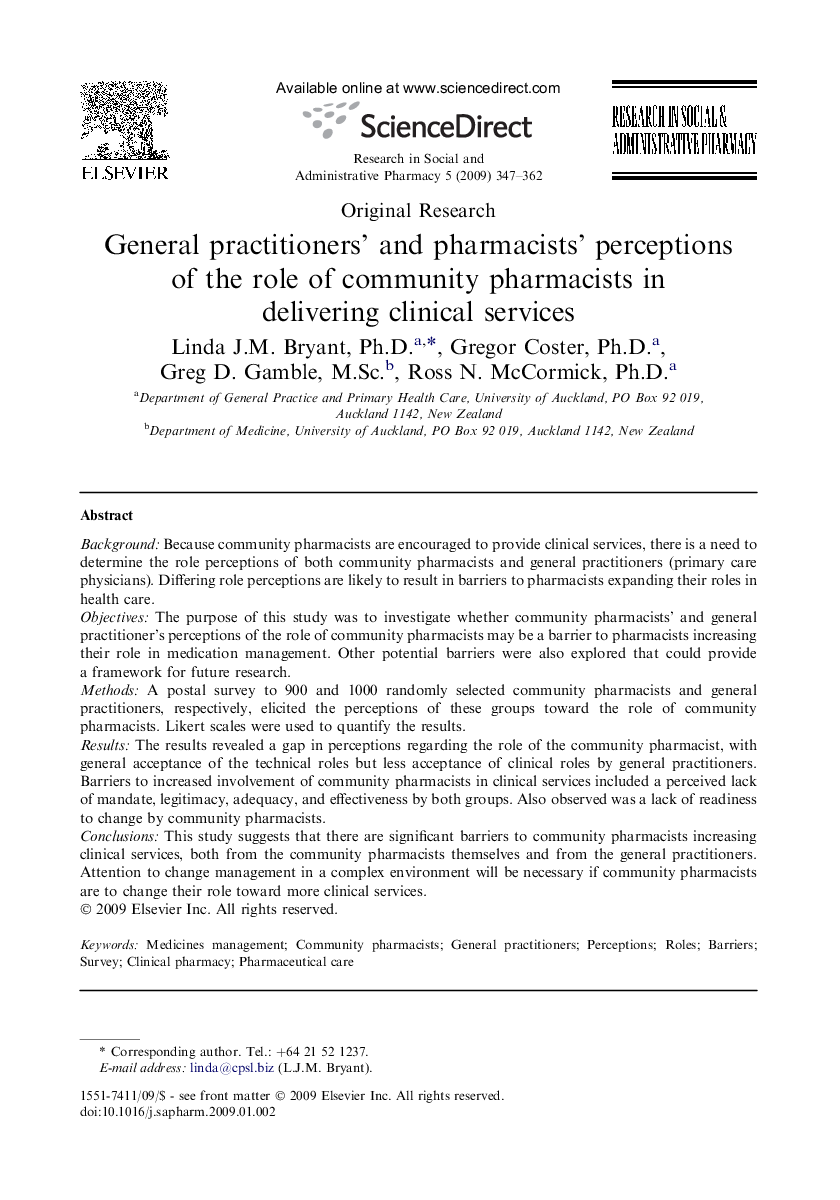| Article ID | Journal | Published Year | Pages | File Type |
|---|---|---|---|---|
| 2508867 | Research in Social and Administrative Pharmacy | 2009 | 16 Pages |
BackgroundBecause community pharmacists are encouraged to provide clinical services, there is a need to determine the role perceptions of both community pharmacists and general practitioners (primary care physicians). Differing role perceptions are likely to result in barriers to pharmacists expanding their roles in health care.ObjectivesThe purpose of this study was to investigate whether community pharmacists' and general practitioner's perceptions of the role of community pharmacists may be a barrier to pharmacists increasing their role in medication management. Other potential barriers were also explored that could provide a framework for future research.MethodsA postal survey to 900 and 1000 randomly selected community pharmacists and general practitioners, respectively, elicited the perceptions of these groups toward the role of community pharmacists. Likert scales were used to quantify the results.ResultsThe results revealed a gap in perceptions regarding the role of the community pharmacist, with general acceptance of the technical roles but less acceptance of clinical roles by general practitioners. Barriers to increased involvement of community pharmacists in clinical services included a perceived lack of mandate, legitimacy, adequacy, and effectiveness by both groups. Also observed was a lack of readiness to change by community pharmacists.ConclusionsThis study suggests that there are significant barriers to community pharmacists increasing clinical services, both from the community pharmacists themselves and from the general practitioners. Attention to change management in a complex environment will be necessary if community pharmacists are to change their role toward more clinical services.
